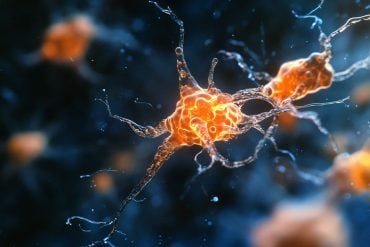Summary: Cancer patients with vitamin D deficiency under palliative care reported a decreased need for opioids to control pain and reduced symptoms of fatigue when given vitamin D supplementation.
Source: Karolinska Institute
Patients with vitamin D deficiency who received vitamin D supplements had a reduced need for pain relief and lower levels of fatigue in palliative cancer treatment, a randomized and placebo-controlled study by researchers at Karolinska Institutet shows.
The study is published in the scientific journal Cancers.
Among patients with cancer in the palliative phase, vitamin D deficiency is common. Previous studies have shown that low levels of vitamin D in the blood may be associated with pain, sensitivity to infection, fatigue, depression, and lower self-rated quality of life.
A previous smaller study, which was not randomized or placebo-controlled, suggested that vitamin D supplementation could reduce opioid doses, reduce antibiotic use, and improve the quality of life in patients with advanced cancer.
244 cancer patients with palliative cancer, enrolled in ASIH, (advanced medical home care), took part in the current study in Stockholm during the years 2017-2020.
All study participants had a vitamin D deficiency at the start of the study. They received either 12 weeks of treatment with vitamin D at a relatively high dose (4000 IE/day) or a placebo.
The researchers then measured the change in opioid doses (as a measurement of pain) at 0, 4, 8, and 12 weeks after the start of the study.

“The results showed that vitamin D treatment was well tolerated and that the vitamin D-treated patients had a significantly slower increase in opioid doses than the placebo group during the study period. In addition, they experienced less cancer-related fatigue compared to the placebo group,” says Linda Björkhem-Bergman, senior physician at Stockholms Sjukhem and associate professor at the Department of Neurobiology, Healthcare Sciences, and Society, Karolinska Institutet.
On the other hand, there was no difference between the groups in terms of self-rated quality of life or antibiotic use.
“The effects were quite small, but statistically significant and may have clinical significance for patients with vitamin D deficiency who have cancer in the palliative phase. This is the first time it has been shown that vitamin D treatment for palliative cancer patients can have an effect on both opioid-sensitive pain and fatigue,” says first author of the study Maria Helde Frankling, senior physician at ASIH and postdoc at the Department of Neurobiology, Healthcare Science and Society, Karolinska Institutet.
The study is one of the largest drug studies conducted within ASIH in Sweden. One weakness of the study is the large drop-out rate. Only 150 out of 244 patients were able to complete the 12-week study because many patients died of their cancer during the study.
Funding: The study was funded by Region Stockholm (ALF), the Swedish Cancer Society, Stockholms Sjukhems Foundation and was carried out with the support of ASIH Stockholm Södra and ASIH Stockholm Norr.
About this cancer research news
Source: Karolinska Institute
Contact: Press Office – Karolinska Institute
Image: The image is in the public domain
Original Research: Open access.
“‘Palliative-D’—Vitamin D Supplementation to Palliative Cancer Patients: A Double Blind, Randomized Placebo-Controlled Multicenter Trial” by Maria Helde Frankling, Caritha Klasson, Carina Sandberg, Marie Nordström, Anna Warnqvist, Jenny Bergqvist, Peter Bergman, Linda Björkhem-Bergman. Cancers
Abstract
‘Palliative-D’—Vitamin D Supplementation to Palliative Cancer Patients: A Double Blind, Randomized Placebo-Controlled Multicenter Trial
In this study, the effect of vitamin D supplementation on pain, infections, fatigue and quality of life in patients with advanced cancer with verified vitamin D deficiency was studied.
To this end, a randomized controlled trial, ‘Palliative-D’, was conducted, comparing the effect of 4000 IU vitamin D3/day for 12 weeks to placebo in cancer patients admitted to palliative care. Pain was assessed as change in opioid dose and infections measured as days on antibiotics.
Vitamin D-supplemented patients increased their opioid doses at a significantly slower rate than patients receiving placebo, i.e., 0.56 µg less fentanyl/h per week with vitamin D treatment. Vitamin D reduced self-assessed fatigue but did not affect antibiotic use or self-assessed Quality of life.
The treatment was safe and well-tolerated. In conclusion, correction of vitamin D deficiency may have positive effects on pain and fatigue in palliative cancer patients.






